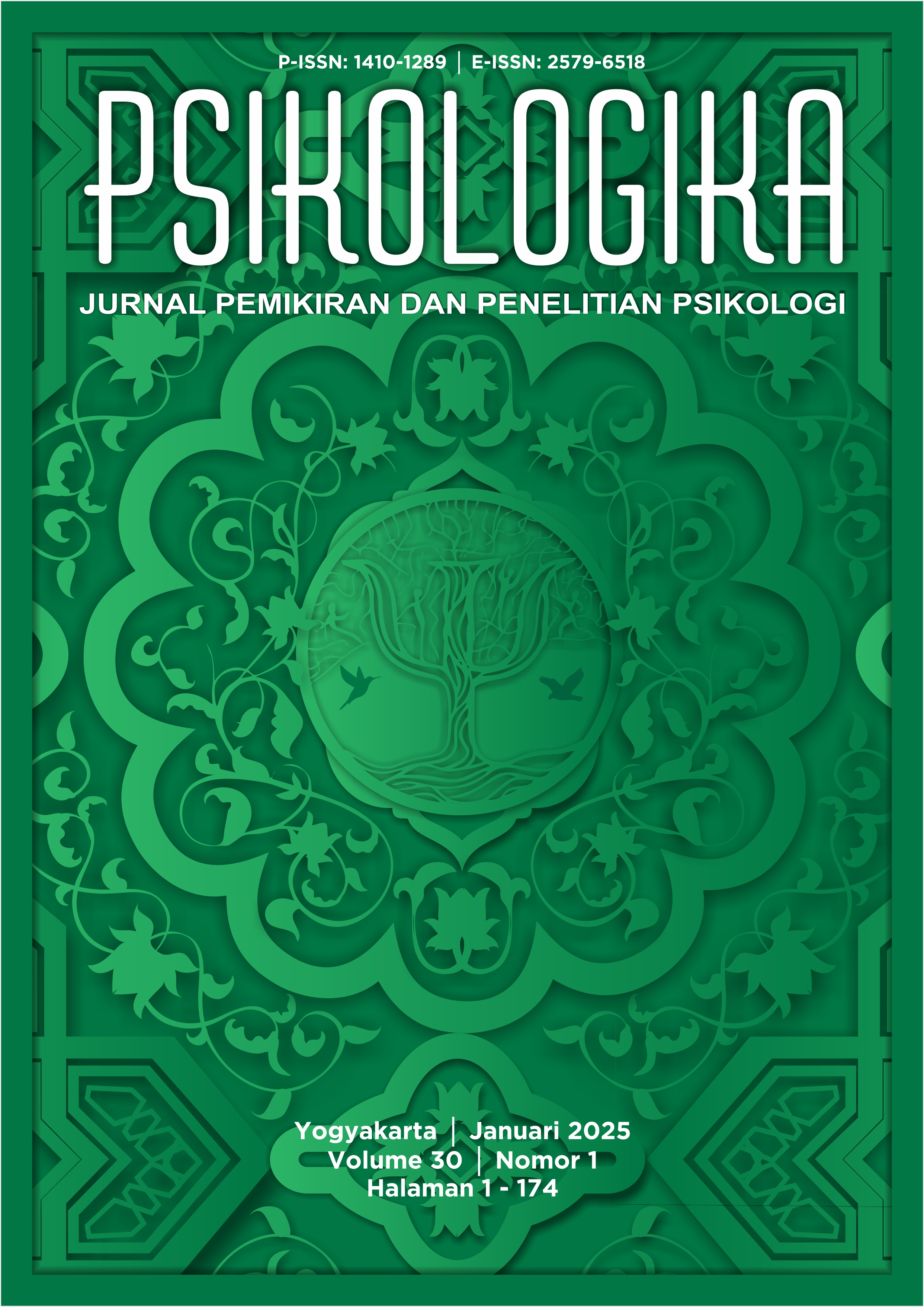Main Article Content
Abstract
The integration of online learning greatly affects final-year students who are working on their thesis. One common challenge they face is academic procrastination. This quantitative study aimed to examine the relationship between self-control, time management, and authoritarian parenting on students’ academic procrastination. A total of 350 final-year students from the Universitas Muhammadiyah Surakarta were selected as participants through a convenience sampling method. Data was collected using scales for academic procrastination, self-control, time management, and authoritarian parenting. Data was analyzed using multiple regression, resulting in an F-value of 94.506 and a p-value of .000. The results showed that selfcontrol, time management, and authoritarian parenting were significantly correlated with academic procrastination. The beta coefficients for self-control and academic procrastination, as well as time management and academic procrastination, were negative, with values of -.286 and -.261, respectively. This indicated that high self-control and time management could reduce academic procrastination. Moreover, authoritarian parenting showed a significant value of .069, suggesting that students getting exposed to higher levels of such parenting style were more likely to engage in academic procrastination. The effective contribution of self-control, time management, and authoritarian parenting to academic procrastination was found to be 45%. Thus, improving self-control could be an effective strategy for reducing academic procrastination.
Keywords
Article Details
Copyright (c) 2025 Rima Wahyu Minati, Lisnawati Ruhaena

This work is licensed under a Creative Commons Attribution-ShareAlike 4.0 International License.
Authors who publish with this journal agree to the following terms:
- Authors retain copyright and grant the journal right of first publication with the work simultaneously licensed under a Creative Commons Attribution-ShareAlike 4.0 International License that allows others to share the work with an acknowledgment of the work's authorship and initial publication in this journal.
- Authors are able to enter into separate, additional contractual arrangements for the non-exclusive distribution of the journal's published version of the work (e.g., post it to an institutional repository or publish it in a book), with an acknowledgment of its initial publication in this journal.
- Authors are permitted and encouraged to post their work online (e.g., in institutional repositories or on their website) prior to and during the submission process, as it can lead to productive exchanges, as well as earlier and greater citation of published work (See The Effect of Open Access).




